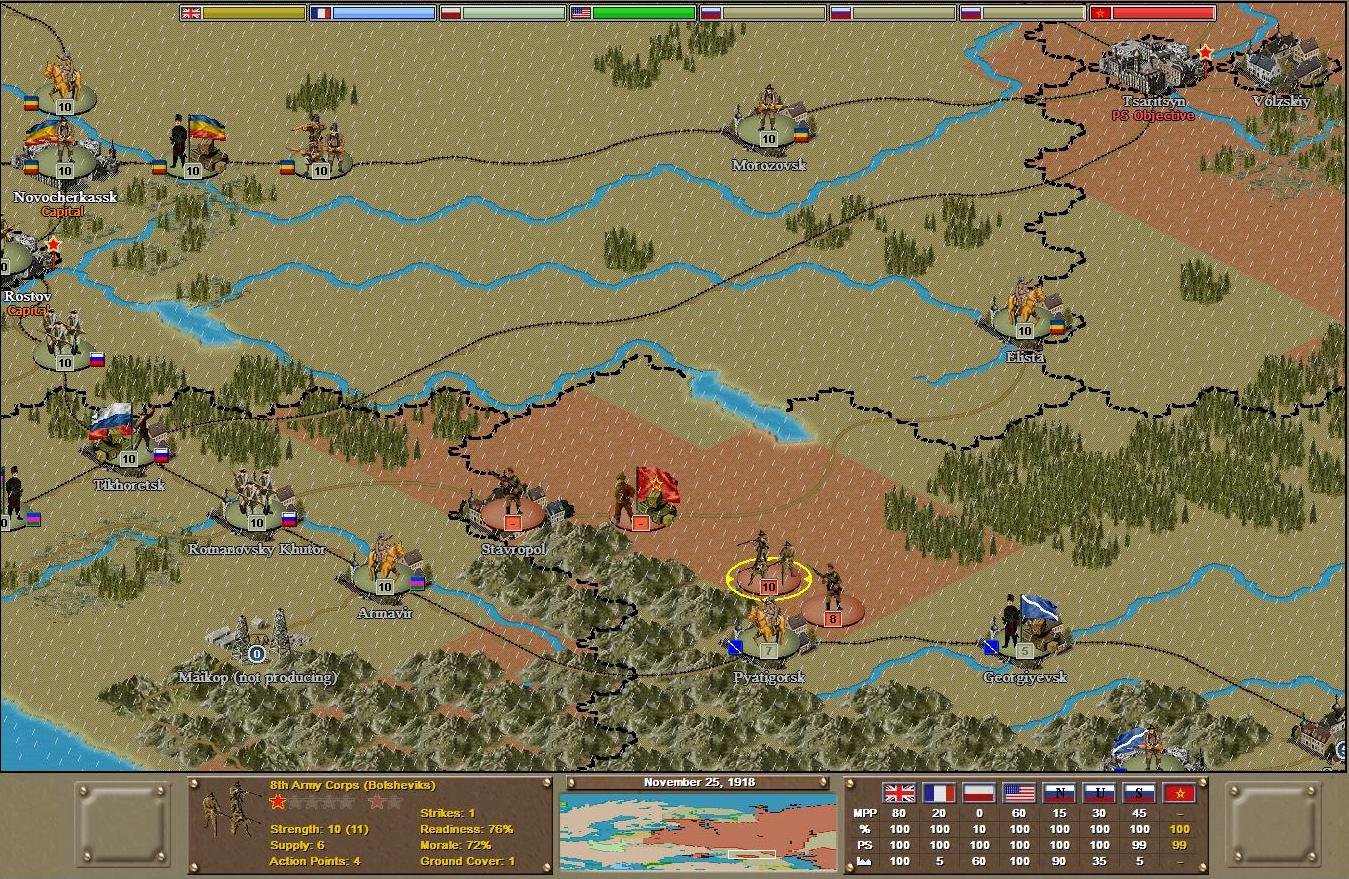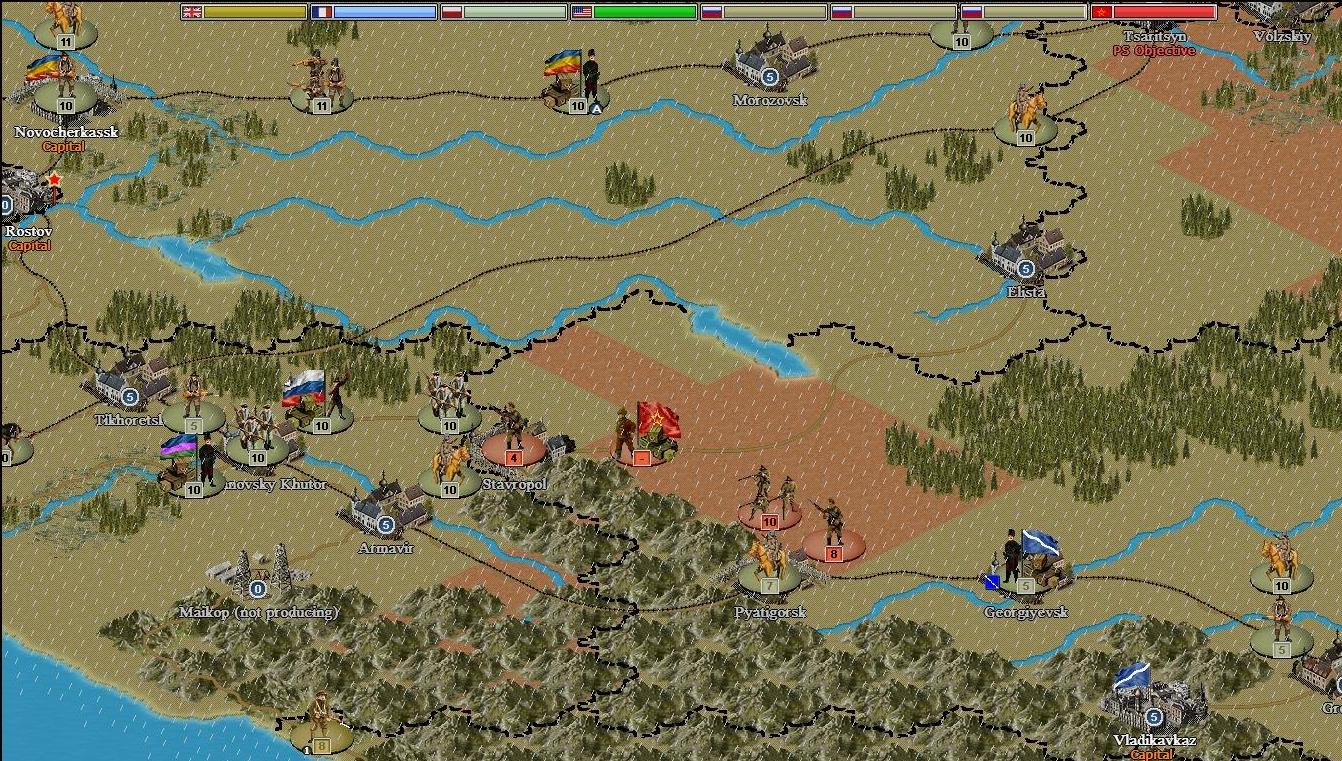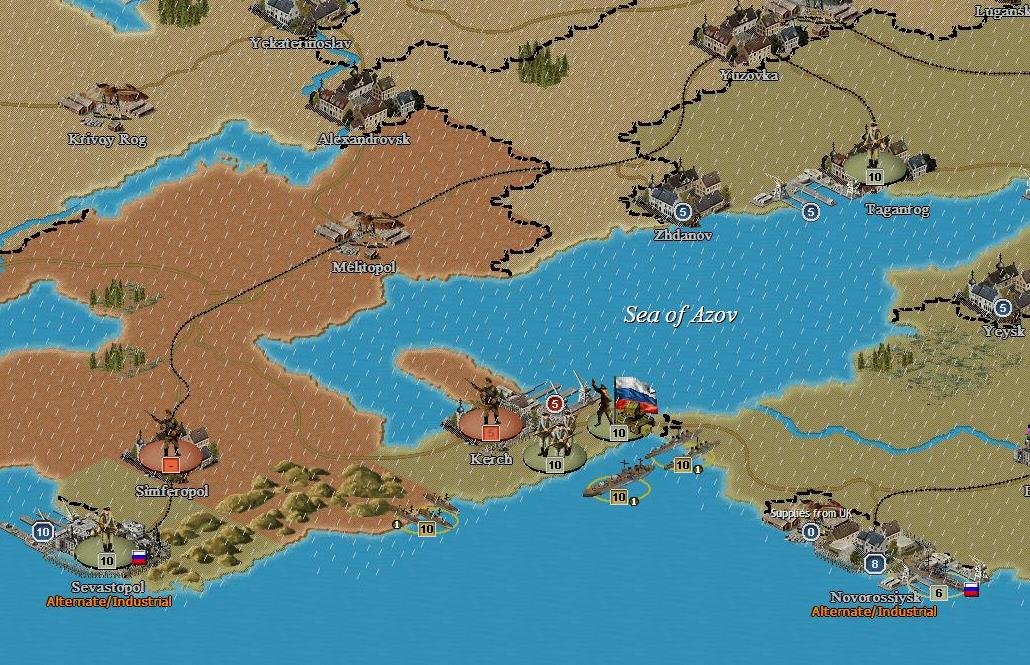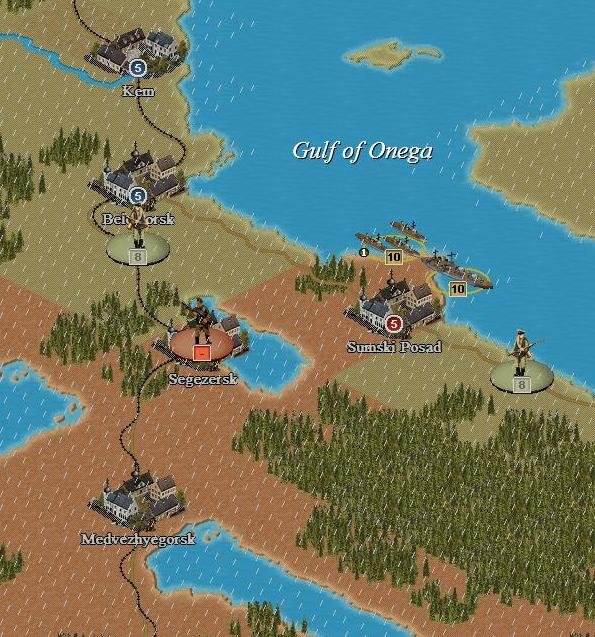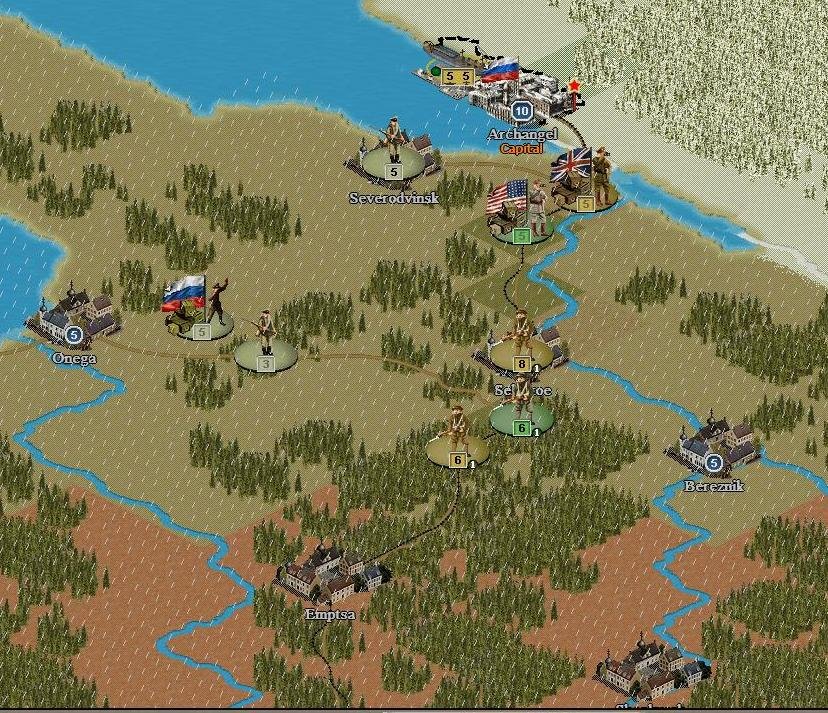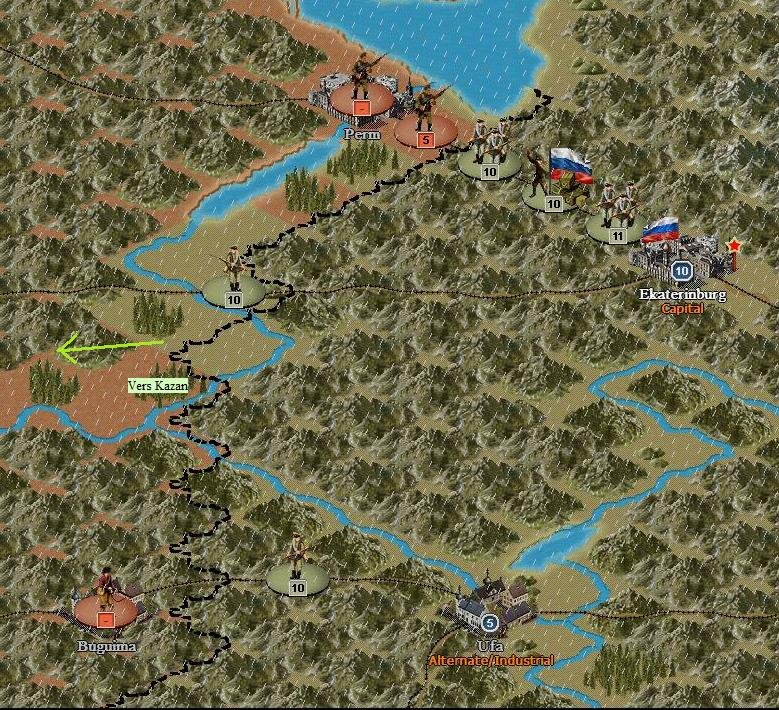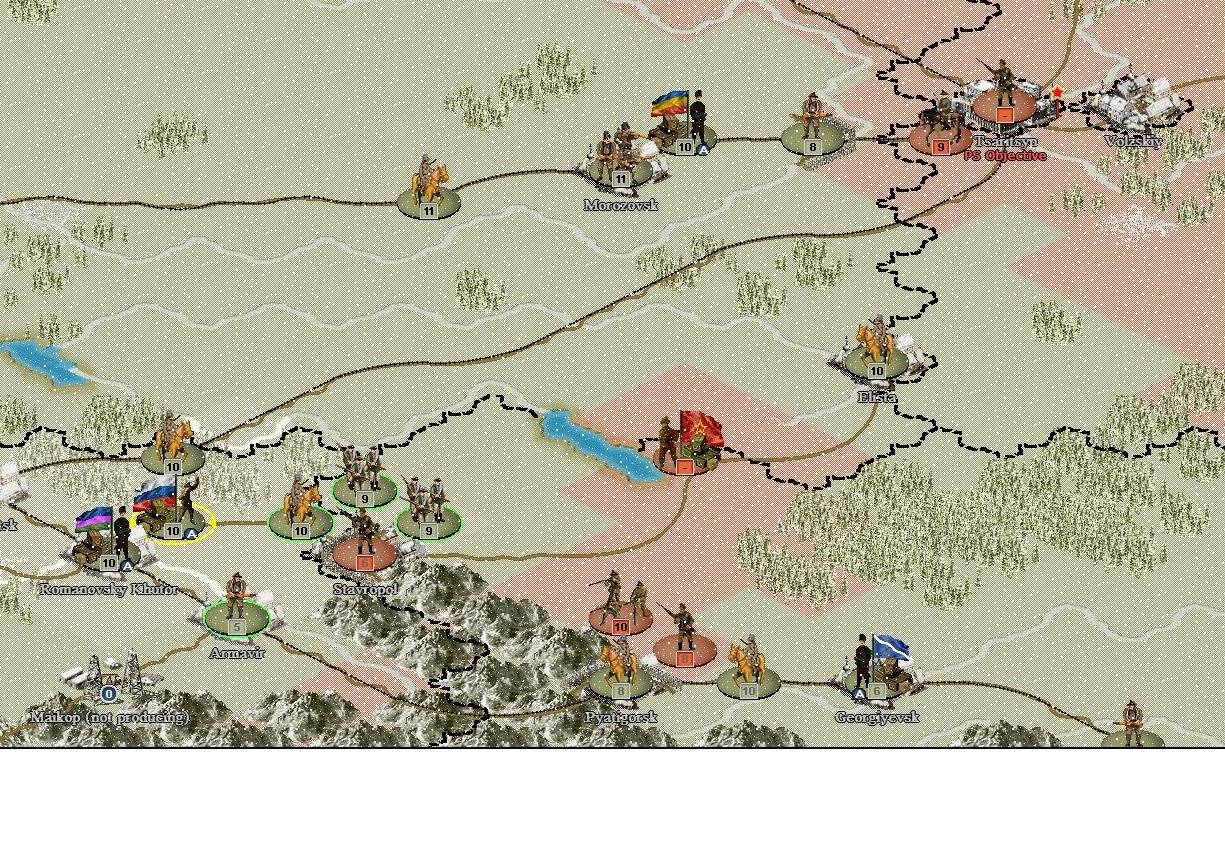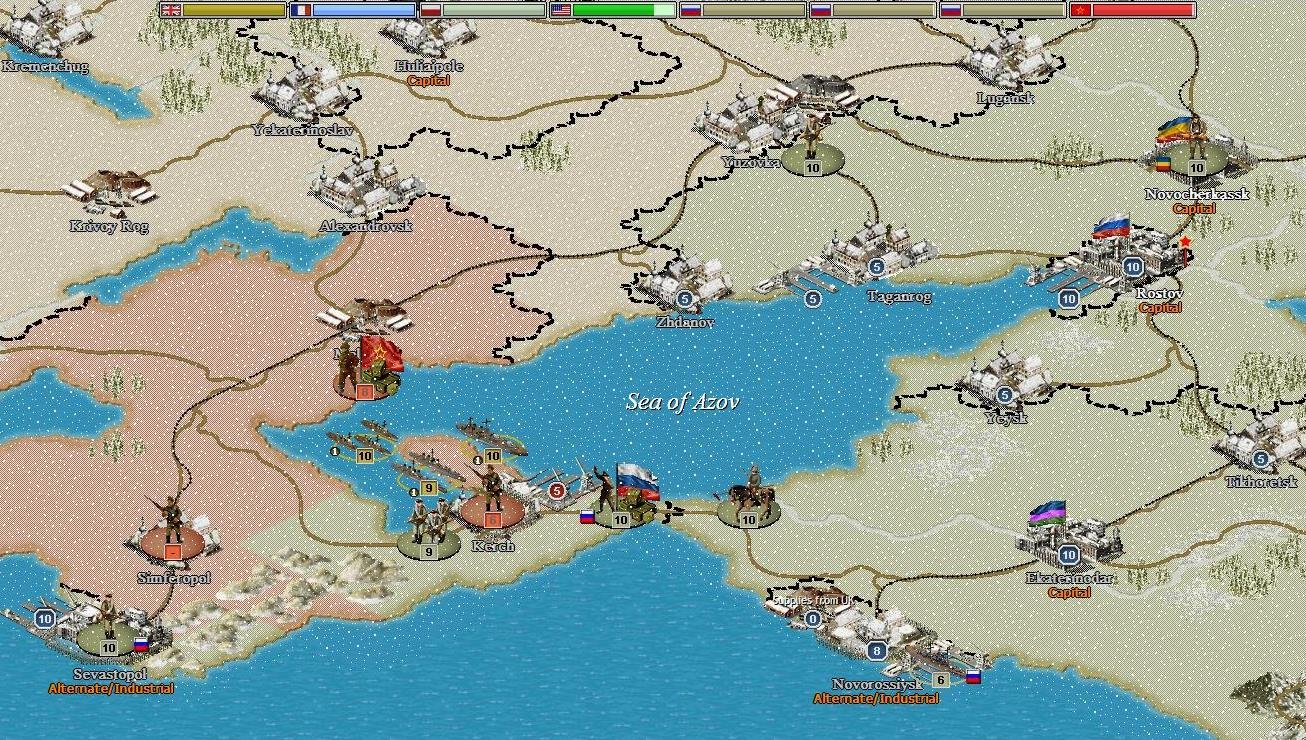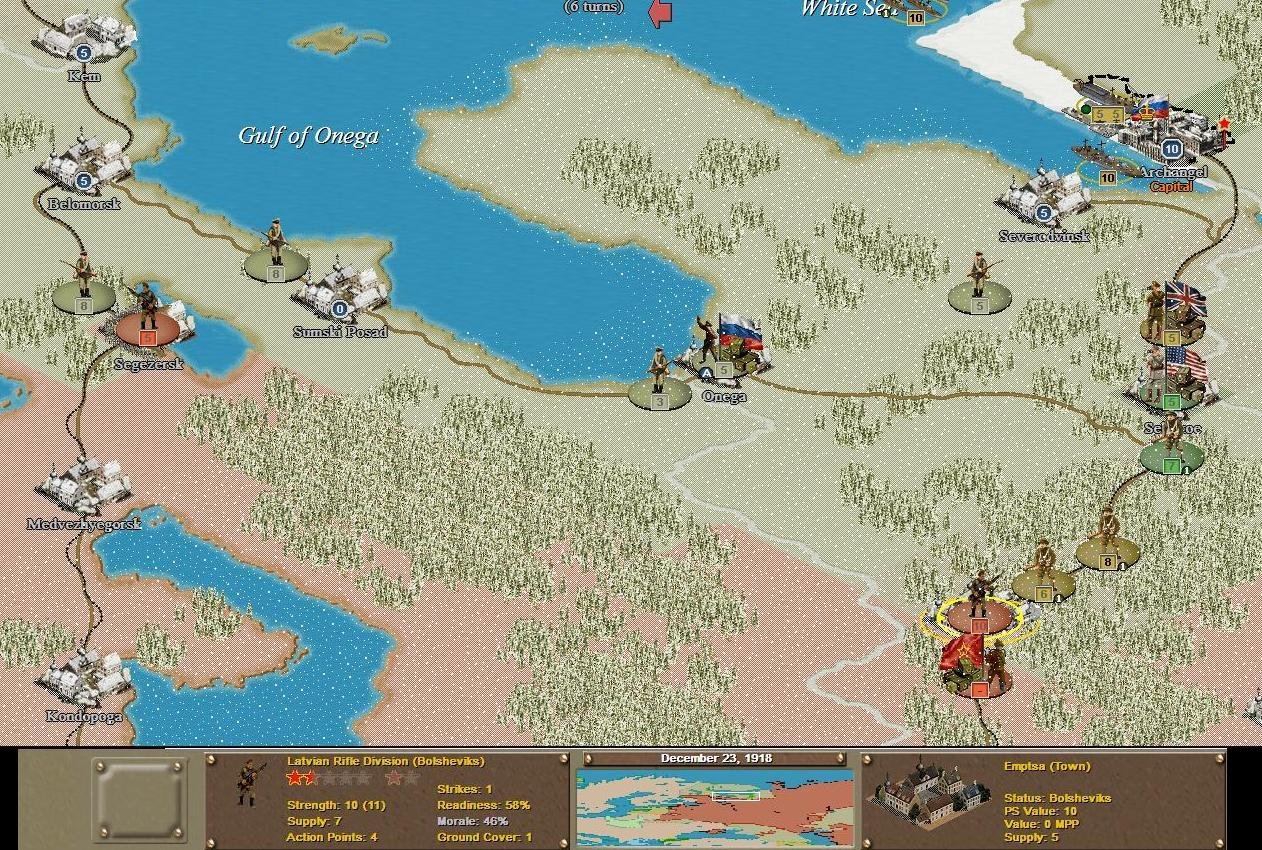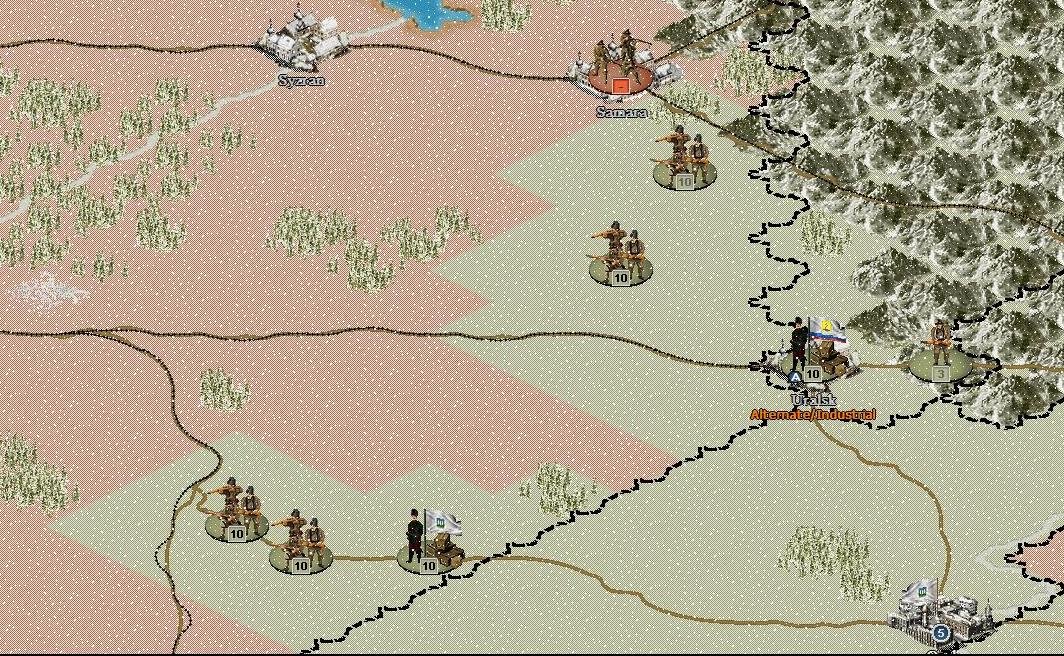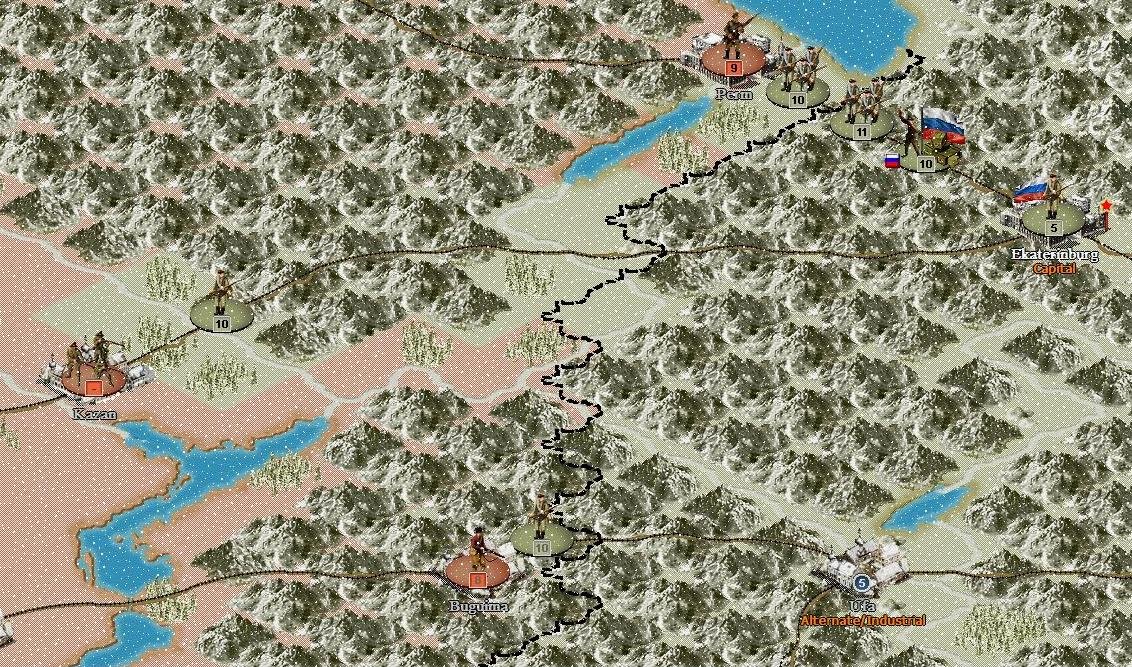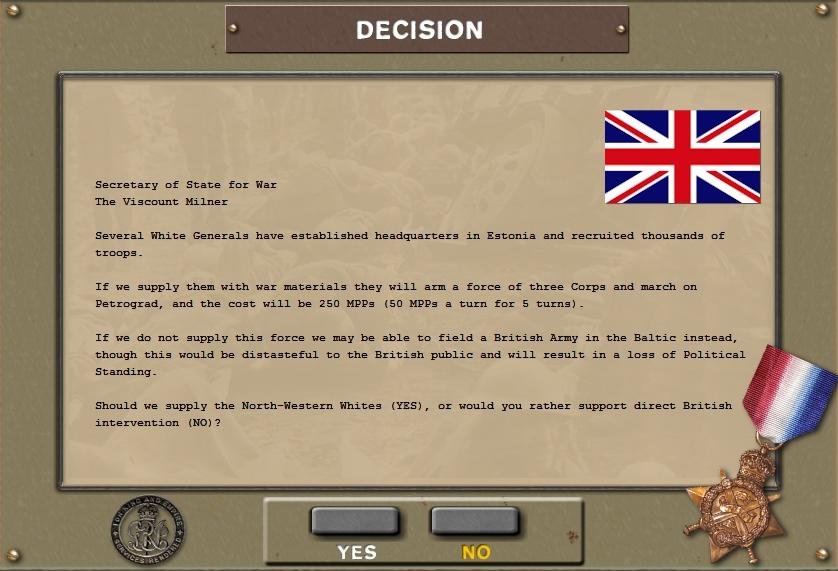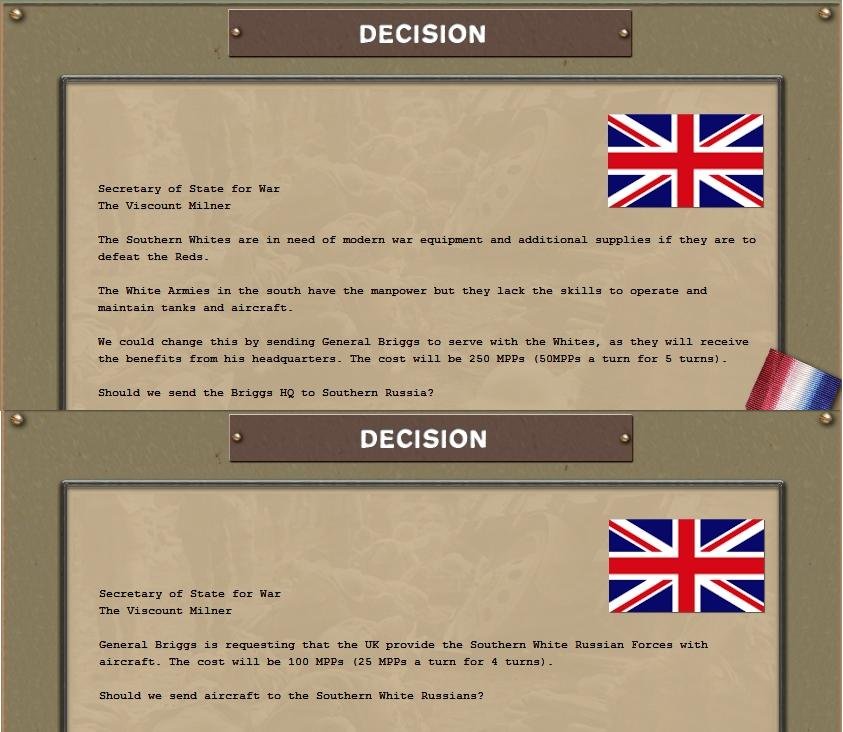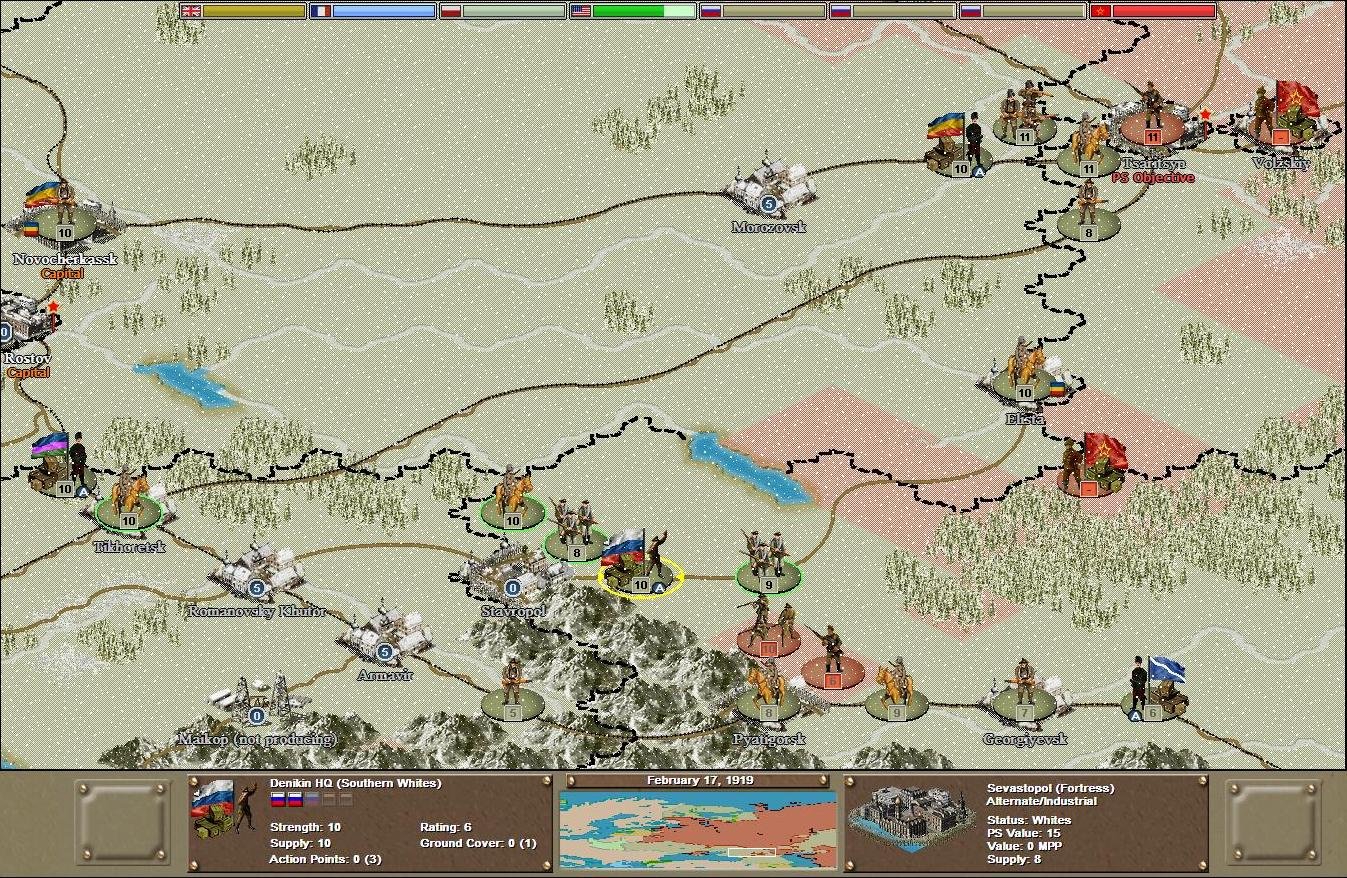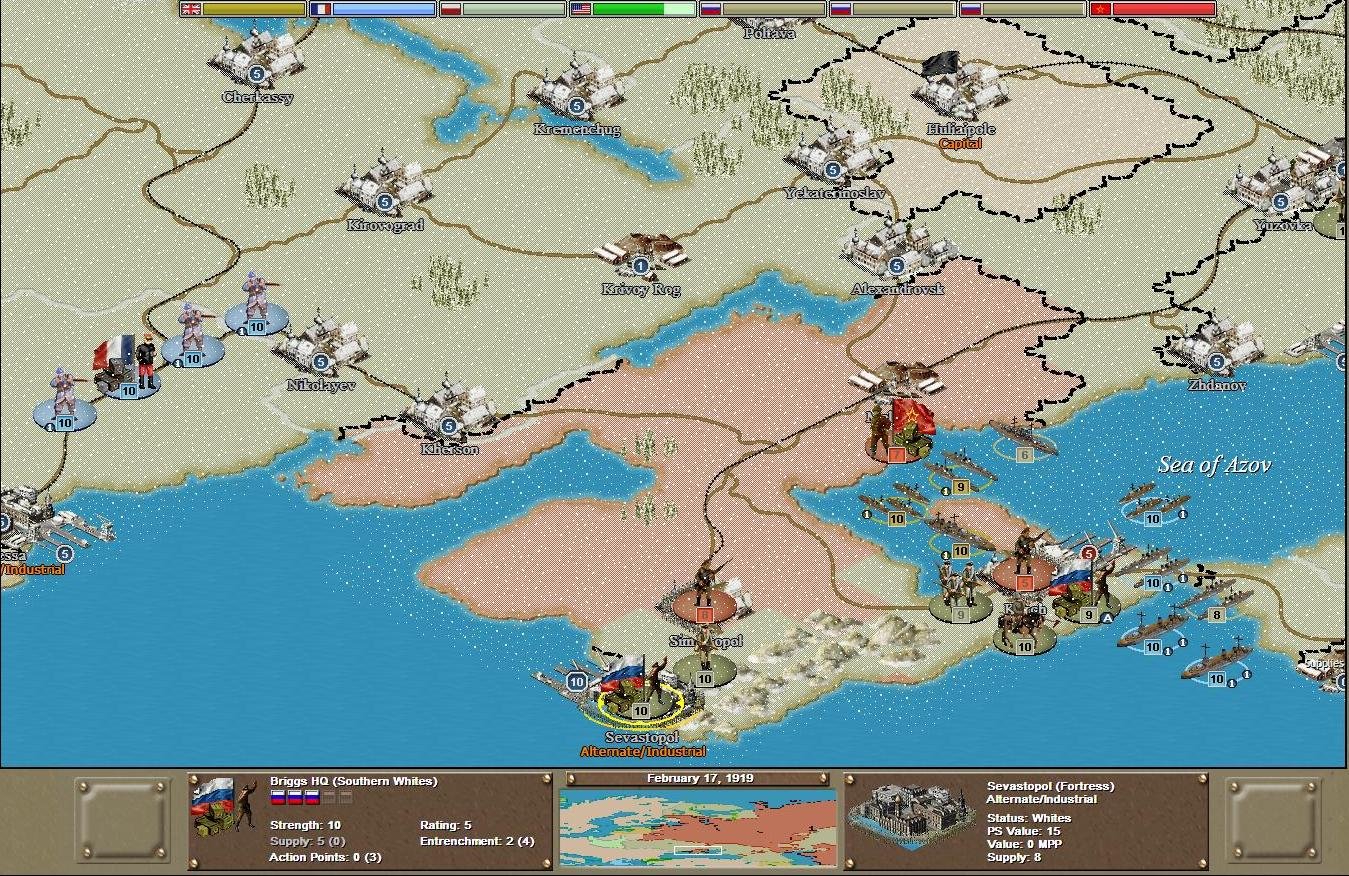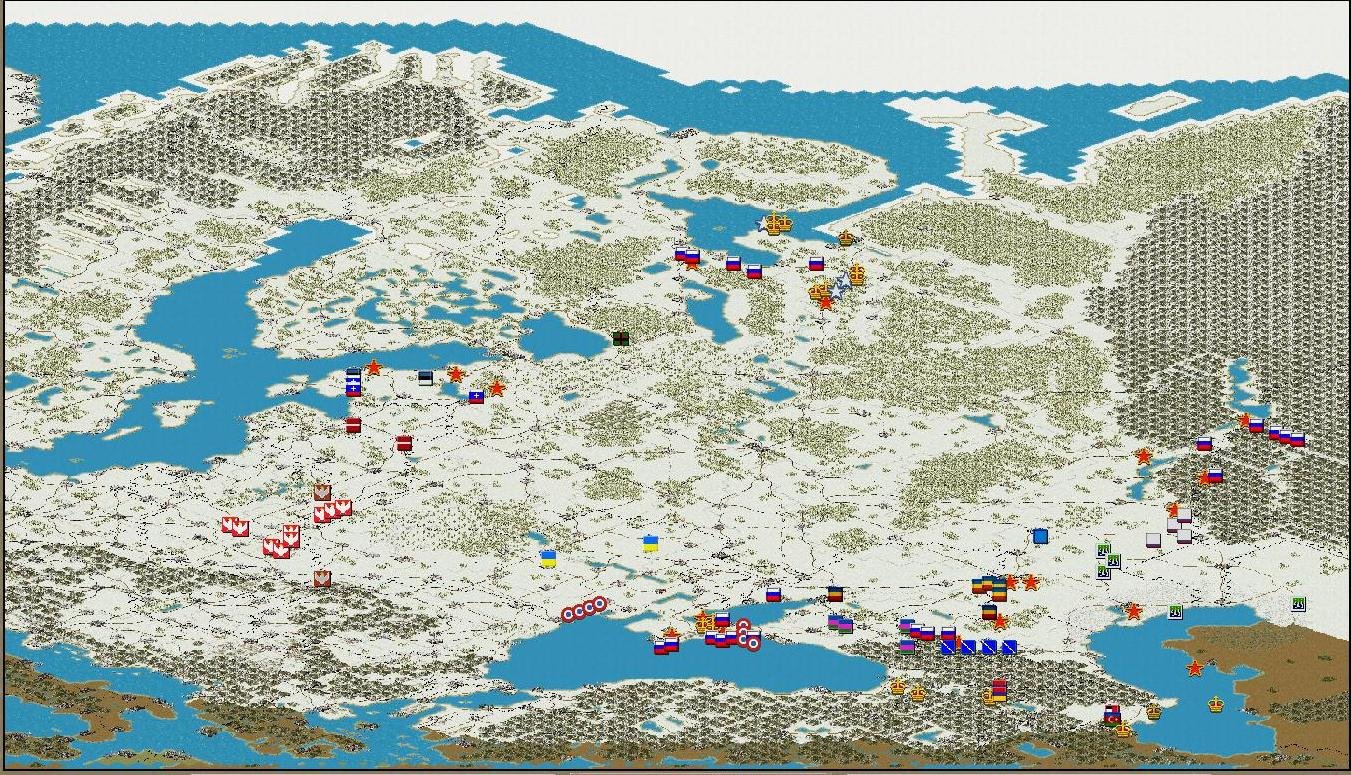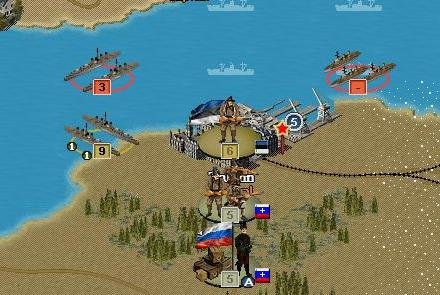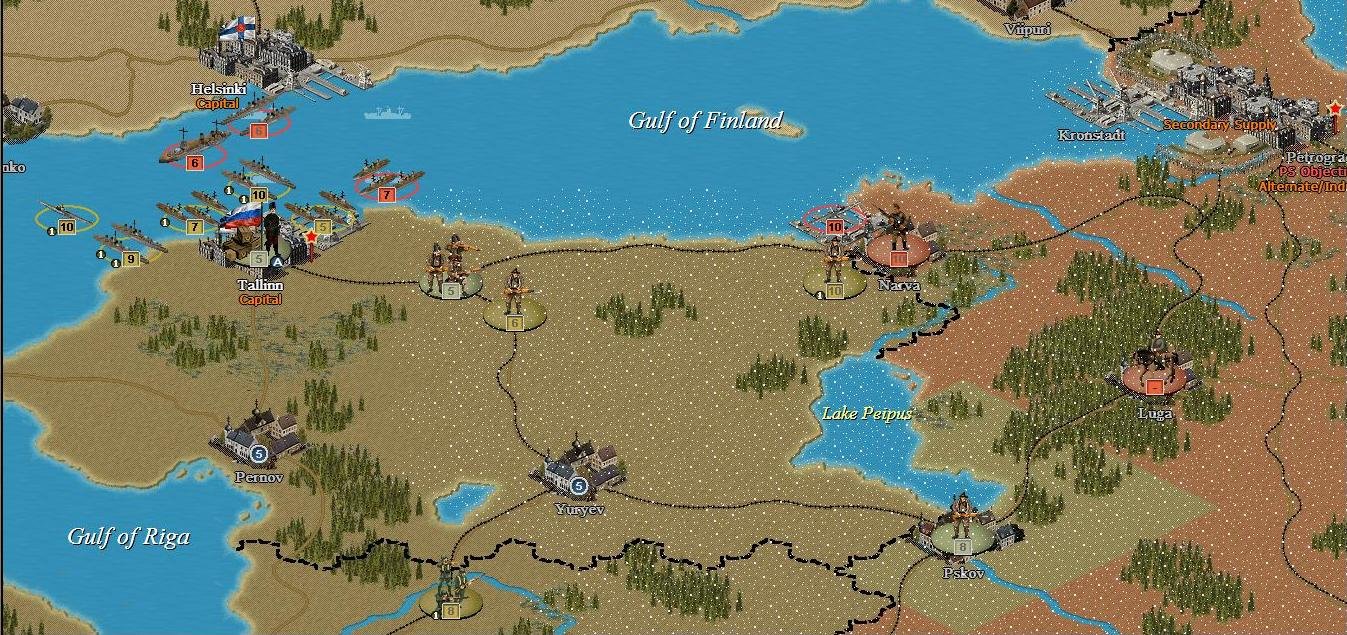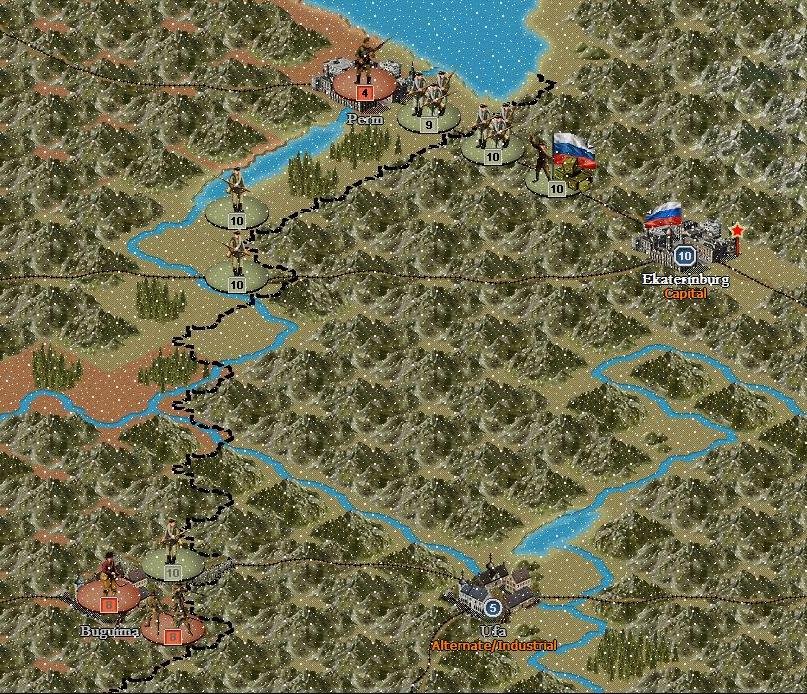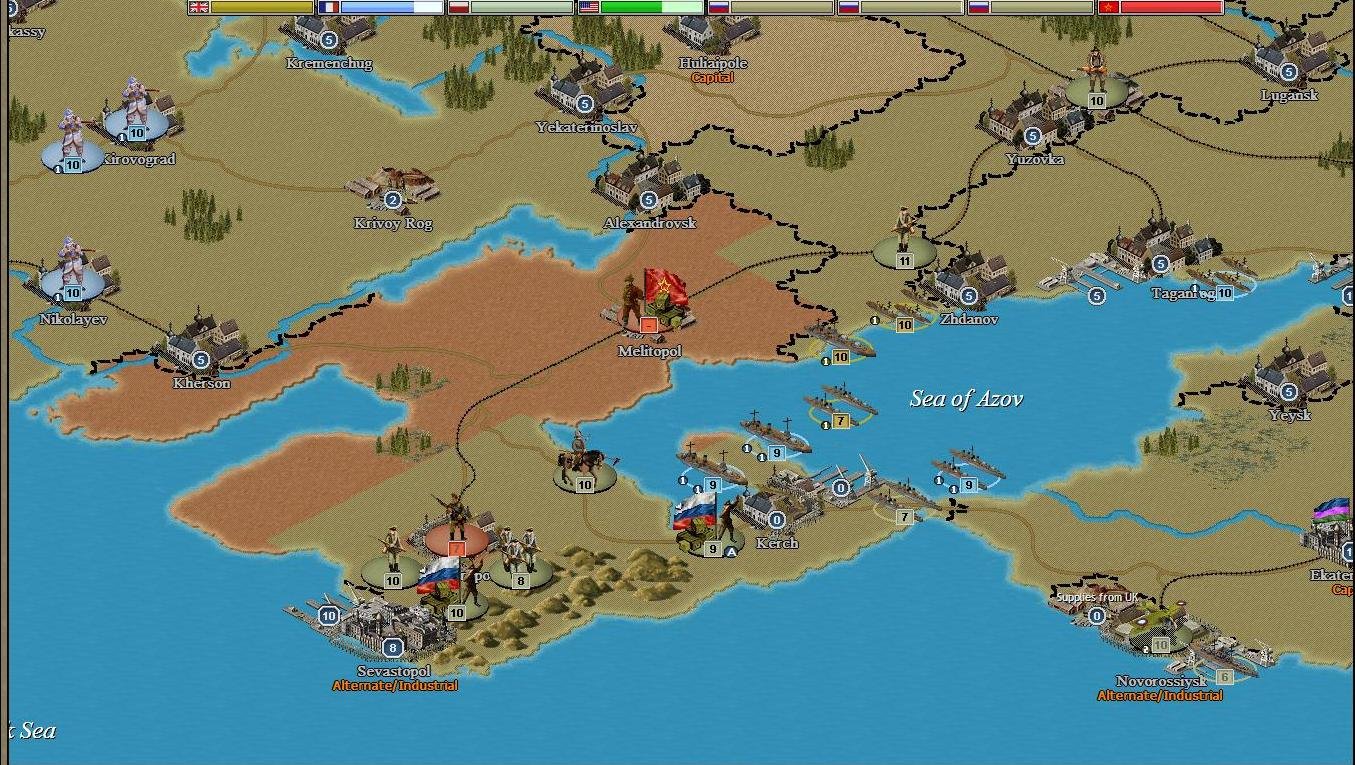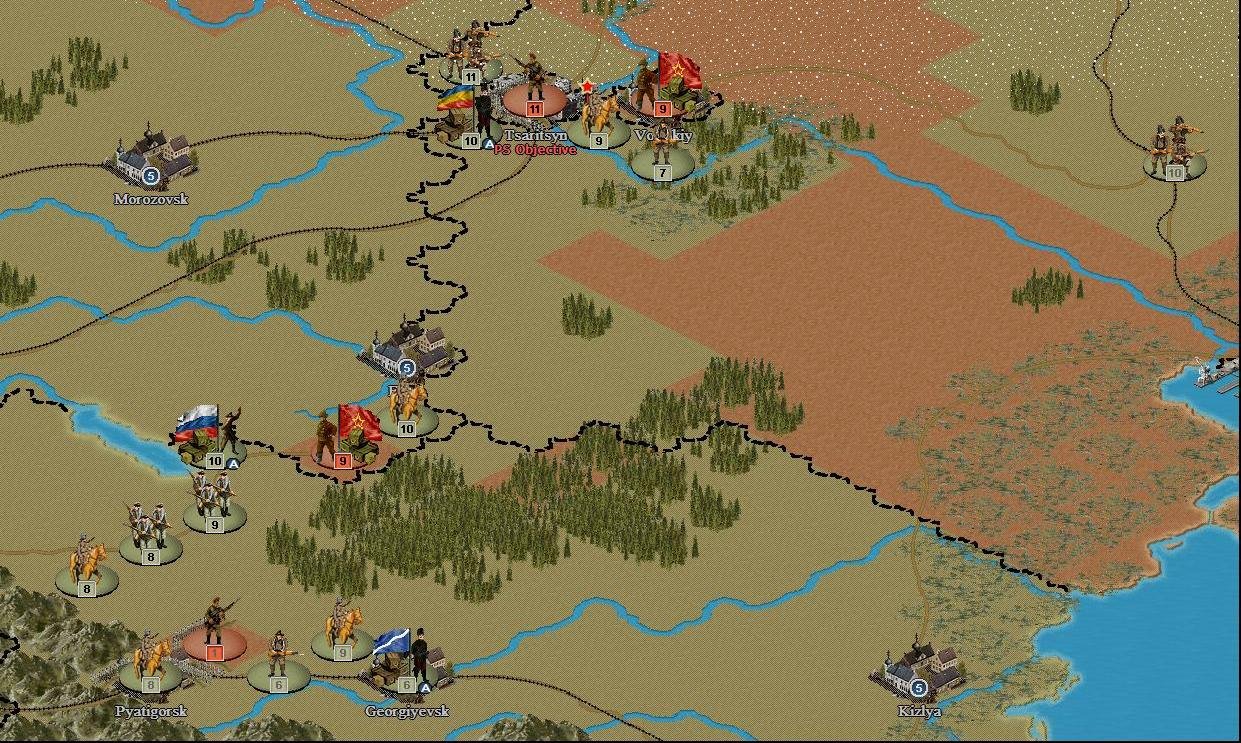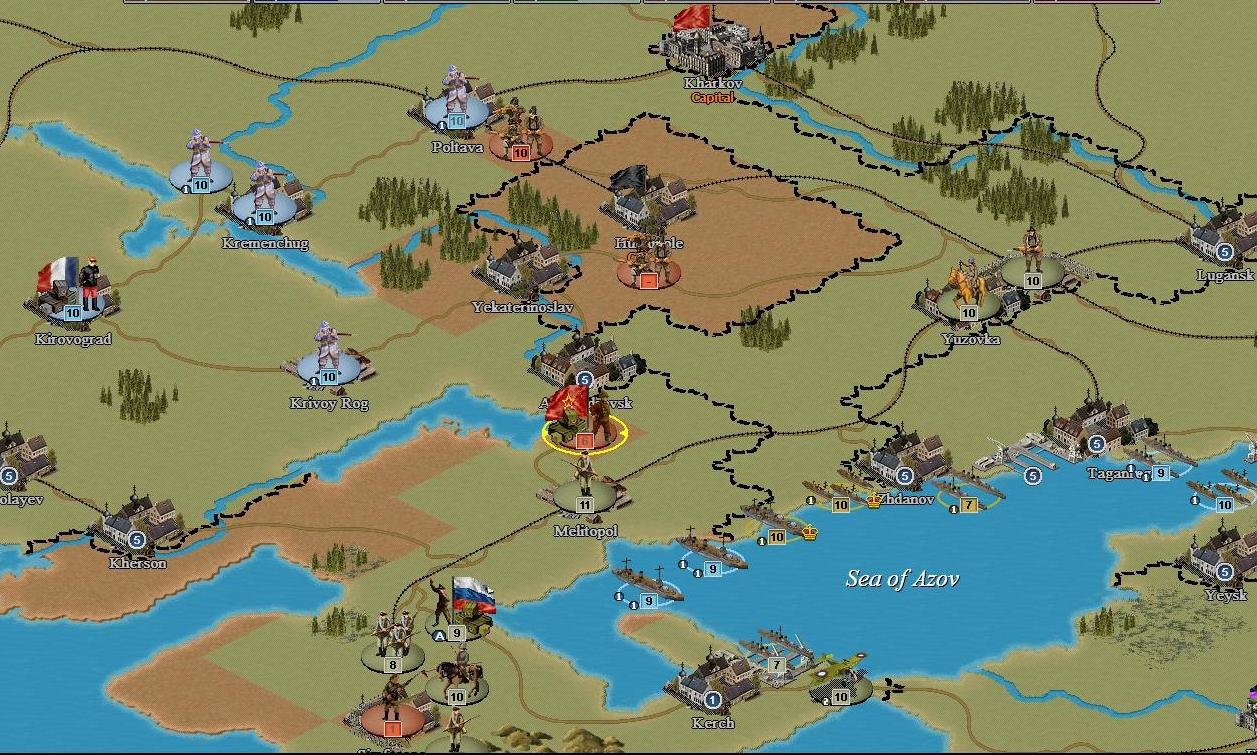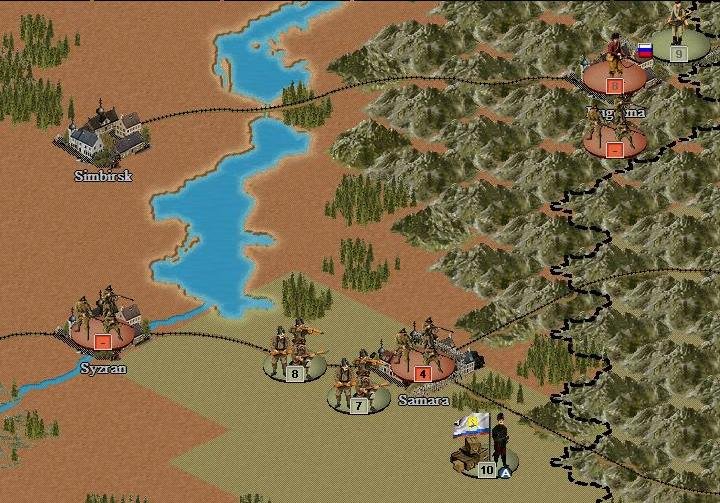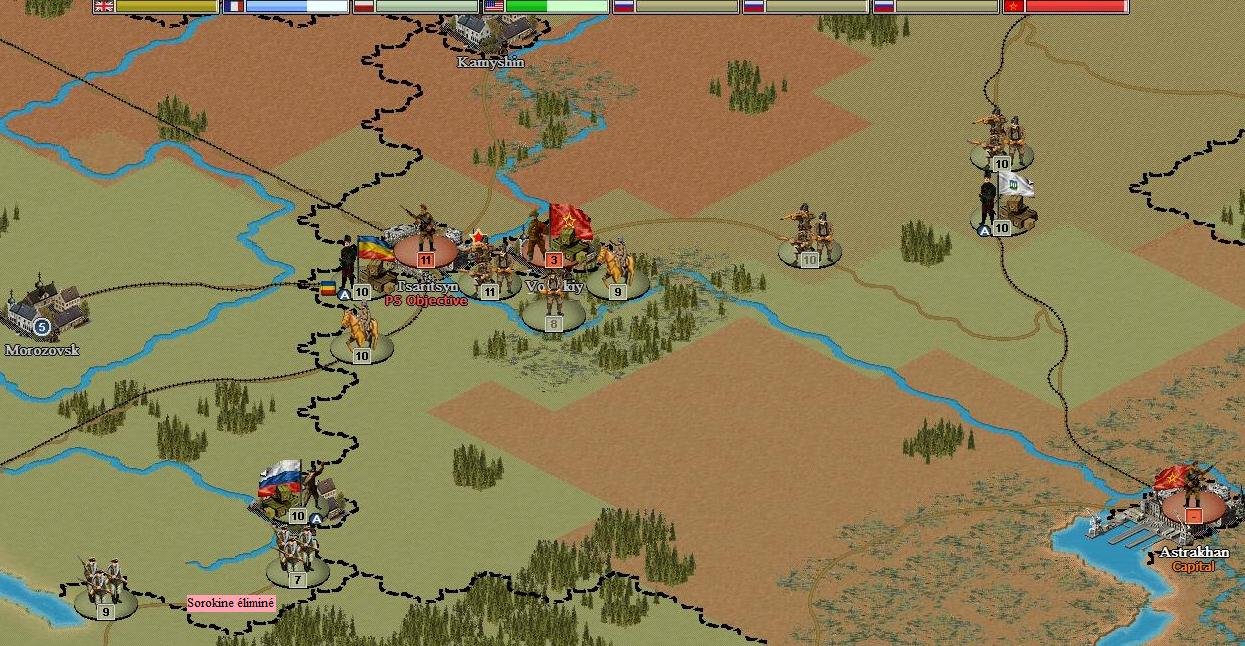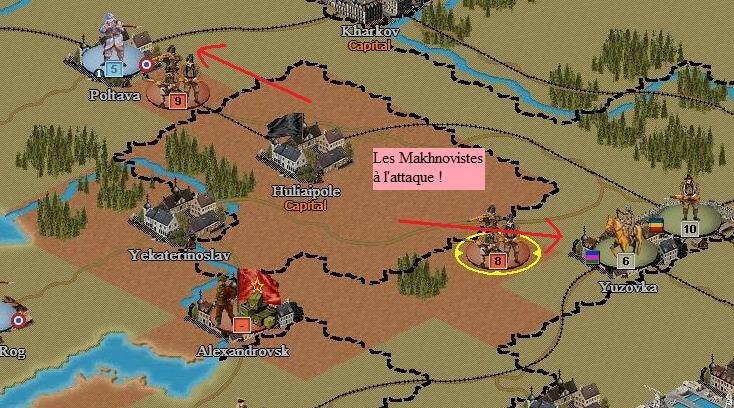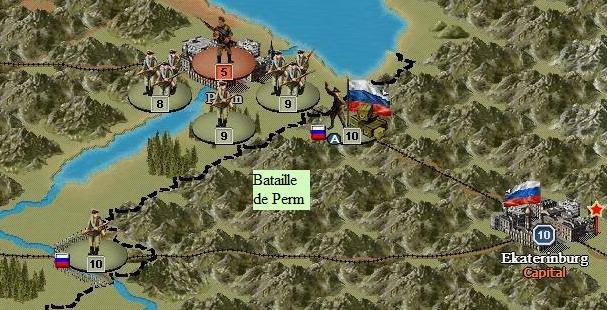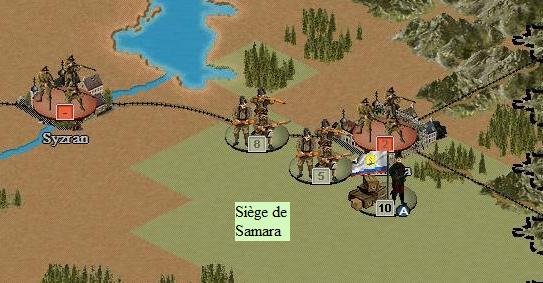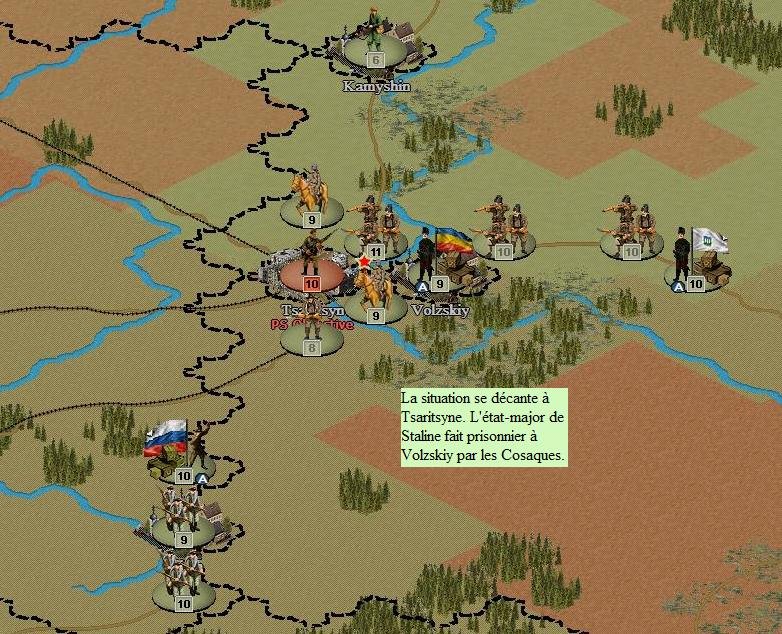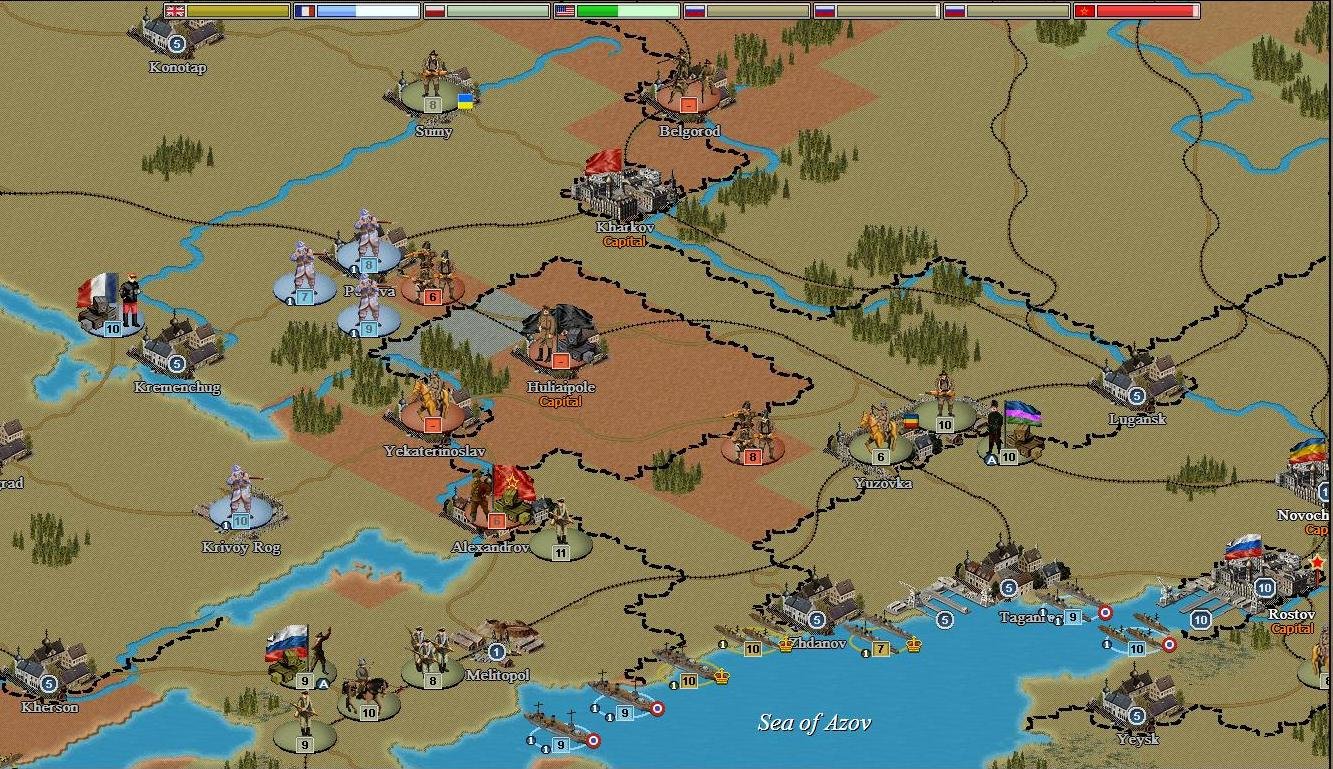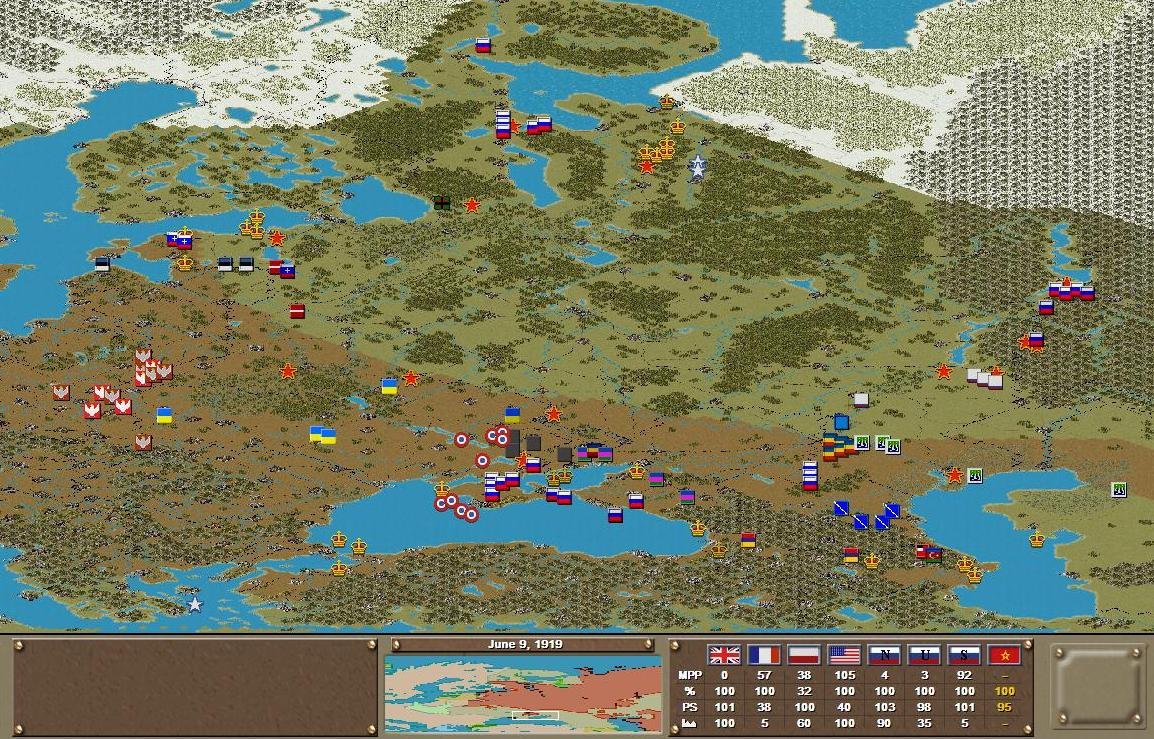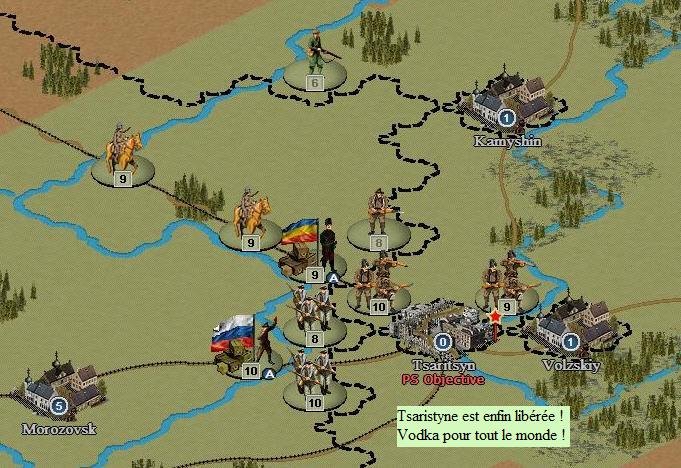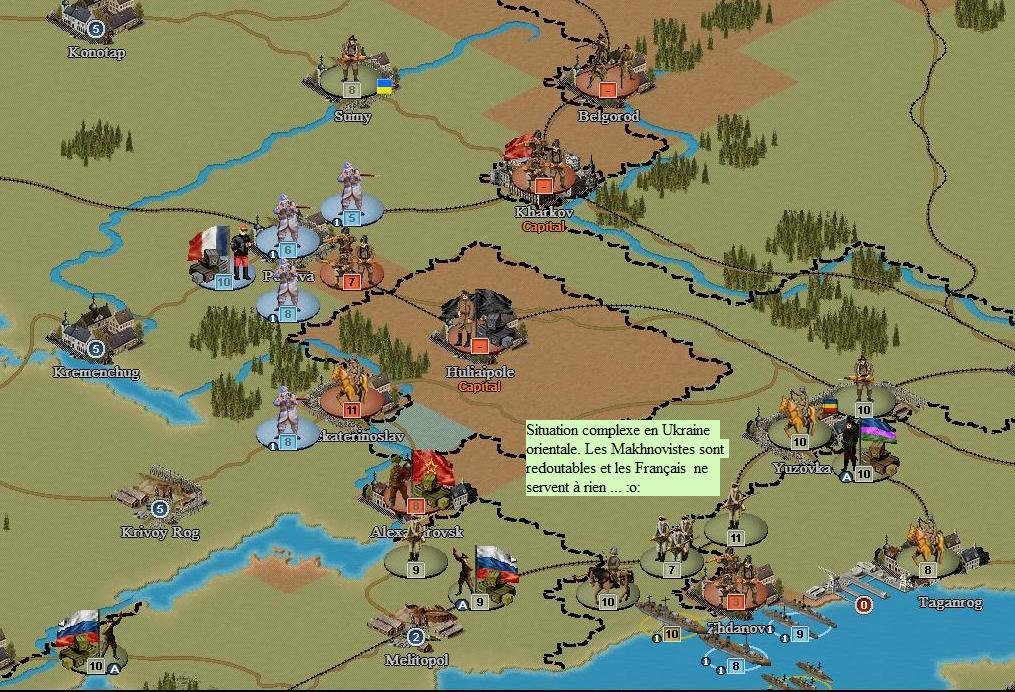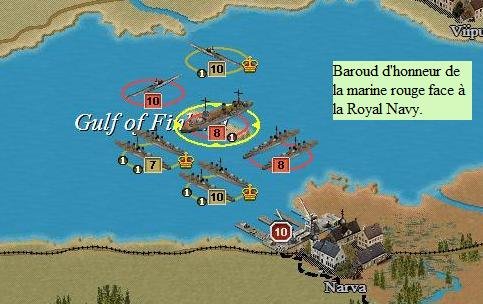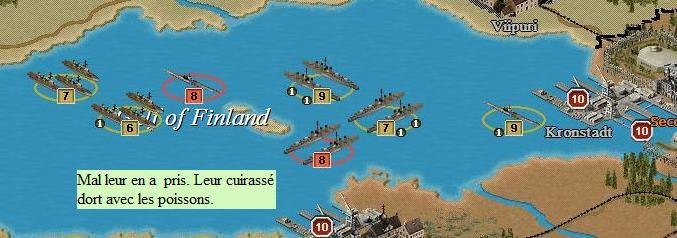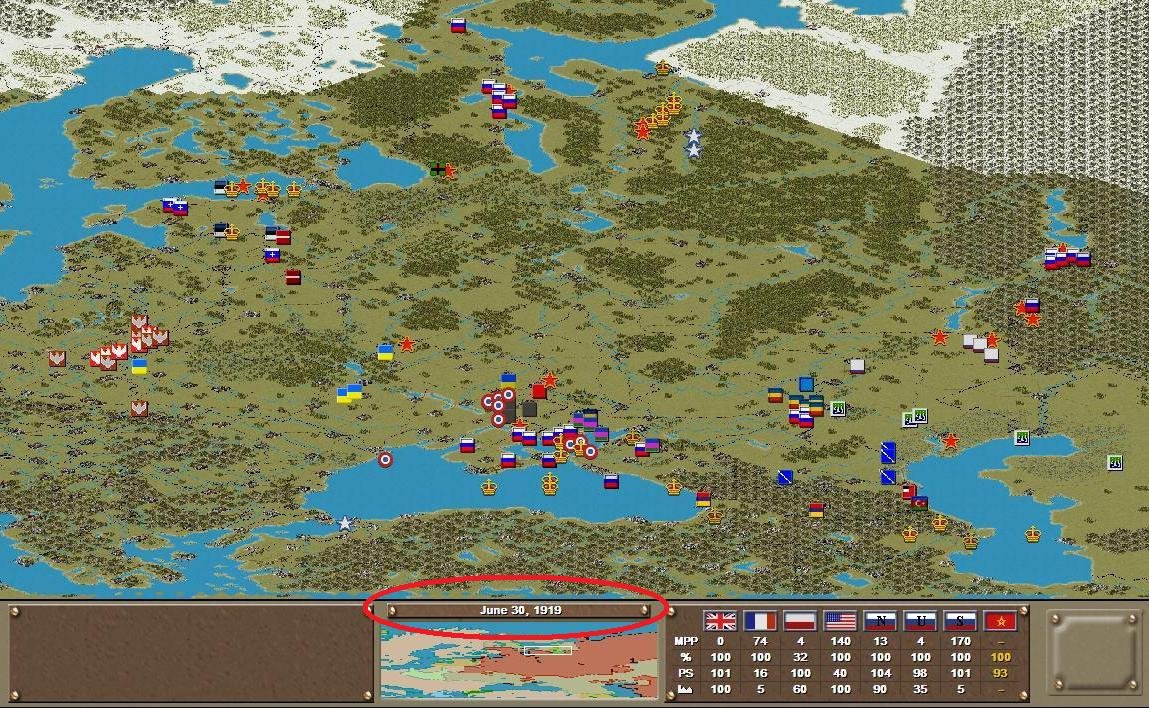La 1ère Guerre Mondiale a provoqué la dissolution de l'Empire russe des Romanov. Le Traité de Brest-Litovsk de mars 1918 mettant fin à la guerre sur le Front de l'Est a rendu la liberté et l'autonomie à de nombreux peuples placés sous domination russe depuis parfois plusieurs siècles, de la Finlande à la Mer Caspienne, mais il a également entraîné la révolte des classes ouvrières et paysannes contre les élites économiques, politiques et militaires. Sous la direction du mouvement bolshevik dominé par Lenine, les Soviets ont pris le pouvoir dans les grands centres urbains et se retrouvent désormais sous la menace de la multitude de mouvements contre-révolutionnaires et/ou nationalistes qui leur contestent le pouvoir.
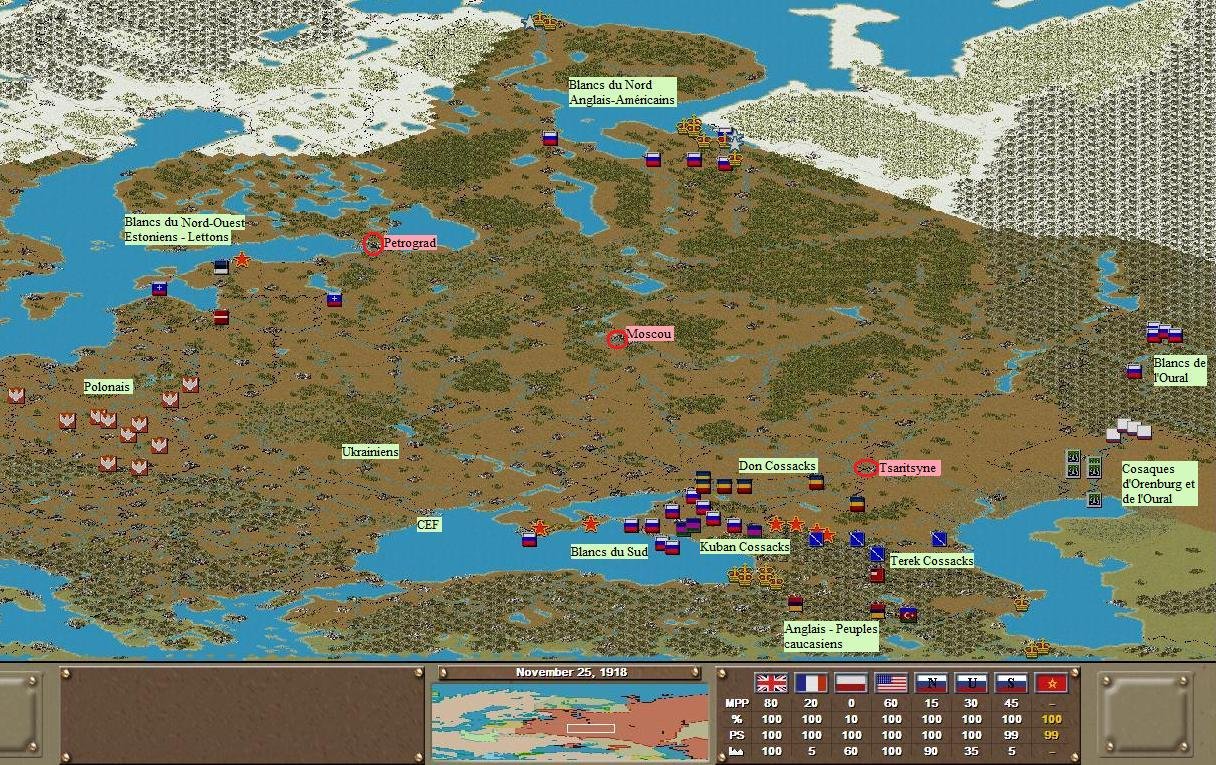
Les belligérants
Les Blancs
Bien que nombreux et relativement bien commandés, les Blancs sont désespérément divisés et vont devoir lutter pour coordonner leurs actions offensives. Les Blancs du Sud sont dirigés par Denikine, ceux du NO par Yudenich, ceux du Nord par Miller et ceux de l'Oural par l'Amiral Koltchak. Ils ont en commun leur aversion du bolchevisme et leurs soutiens proviennent de toutes les classes de la société, de la paysannerie aux nobles. Un certain nombre, mais non la majorité, souhaite une restauration monarchique. D'autres veulent juste instaurer une démocratie parlementaire et nombreux sont ceux qui sont inspirés par la défense de leur pratique religieuse, mise à mal par la doctrine communiste.
Les Blancs sont généralement opposés à l'existence d'Etats indépendants anciennement sous domination russe, tels que la Finlande, la Pologne, l'Ukraine, les Pays Baltes et les peuples du Caucase, luttant plutôt pour une Russie "une et indivisible". C'est évidemment un problème pour eux car de nombreuses parties de la Russie sont désormais contrôlées par plusieurs factions, dont de nombreux Cosaques, dont le soutien est vital dans l'optique d'une victoire. Enfin, l'absence d'un commandement unifié, d'une recherche commune et d'un partage des ressources sont des éléments handicapants majeurs, mais l'espoir d'une intervention étrangère massive compense en partie ces éléments défavorables.
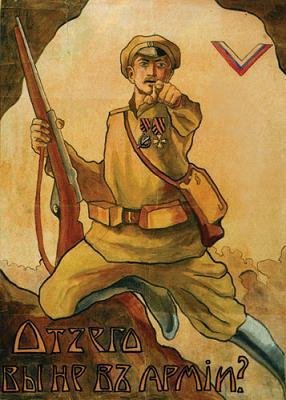
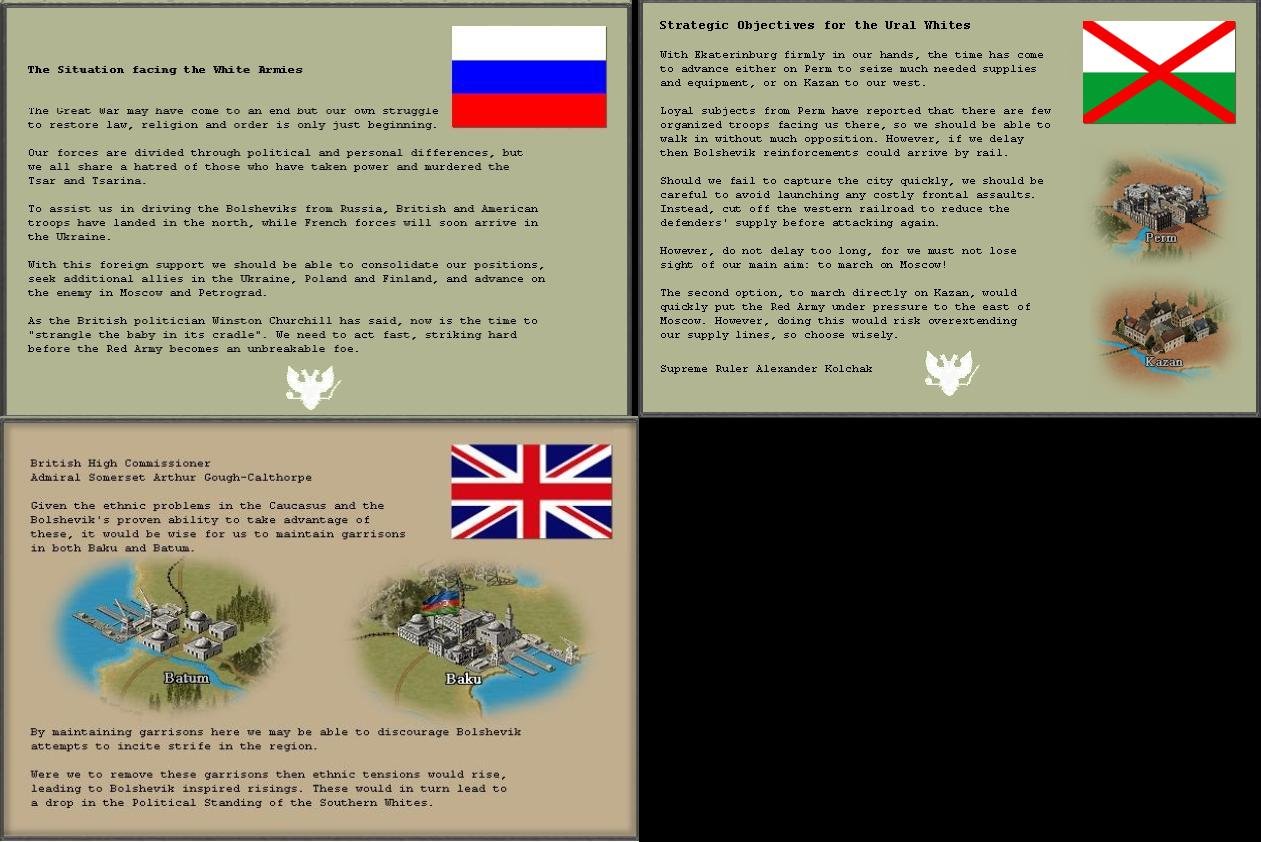
Les Bolcheviques
Sous la ferme direction de Lenine, Trotski et de la nouvelle étoile montante du mouvement, le Géorgien Staline, les Bolcheviques sont le mouvement révolutionnaire russe le plus solide et le plus couronné de succès. Contrôlant le centre du pays et les grandes villes de Petrograd et Moscou, les Bolcheviques ont l'avantage de pouvoir opérer sur des lignes intérieures et un commandement centralisé qui fait défaut aux Blancs. Mais Lenine et ses disciples sont encerclés de toutes parts par leurs ennemis et même leurs alliés potentiels, les Makhnovistes, ont leur propre agenda et ne peuvent être crus sur parole. De ce fait, il faudra une volonté de fer, une farouche détermination et probablement de grands sacrifices pour maintenir et propager l'idéal révolutionnaire en Russie et au-delà.
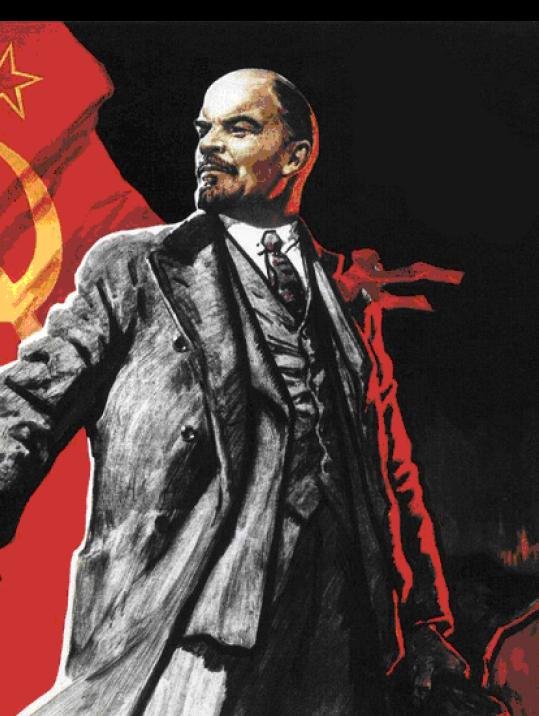
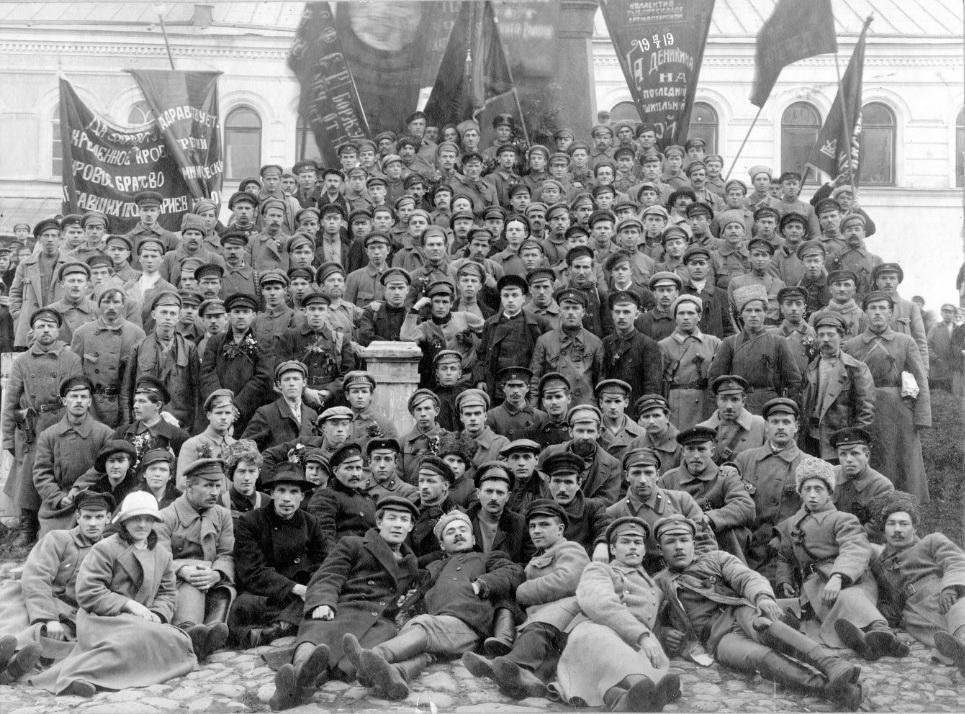
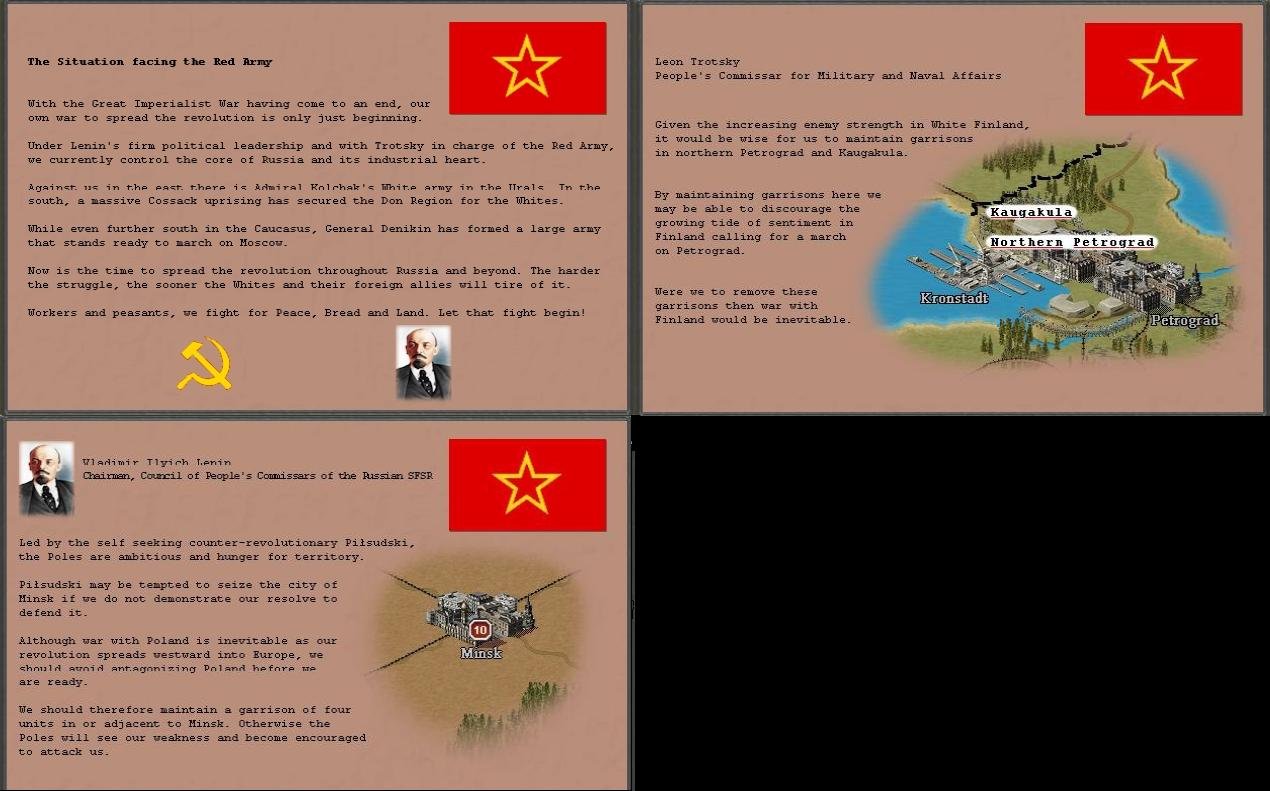
Bon, à partir de là, j'en ai eu marre de traduire ... vous m'excuserez ...
Les Makhnovistes
This movement follows the inspirational leadership of Nestor Makhno, a 30 year old Ukrainian peasant from Huliaipole (known in some English language histories as Guilai-Pole) in the Ukraine. Makhno was imprisoned in the wake of the 1905 revolution, and in prison became an anarchist through the influence of Piotr Arshinov, the future historian of the Makhnovist movement.
With the collapse of order in the Ukraine in 1917-18, Makhno has joined up with other anarchists, especially the sailor Fyodor Shuss, and they are starting to form the Revolutionary Insurrectionary Army of the Ukraine. Bearing the black flag of anarchy, this army is growing in size and strength, and will be a thorn in the side for whoever fights against it.
Given their rejection of authority, and hostility to all other factions, whether Red or White, the Makhnovists are trusted by none. But the Bolsheviks will benefit from an alliance with this peasant army, certainly in 1919 when the Whites advance on Moscow, though less so as the war progresses, and the time will undoubtedly come when the Bolsheviks will feel the need to turn on their Makhnovist allies.
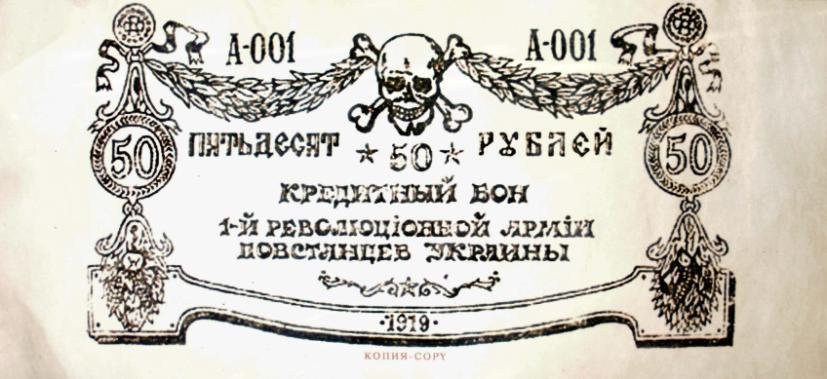
The Interventionists
What started with efforts by Britain, France and the USA to keep Russia in the war following the first revolution in February 1917, has now evolved into a determination to prevent a Bolshevik victory in Russia.
This is not solely out of a desire to support the Whites in Russia, for the Bolshevik program of international revolution has struck a worrying chord among many in the labor movements in the Entente countries. The Entente powers have seen how the spread of Bolshevik ideas to the Central Powers contributed to the internal collapse of Germany and Austria-Hungary, and the last thing they want is for this to happen in their own countries too.
Supplying tanks, aircraft, arms, money, and even men, the British, French and US provide vital support to the Whites, and without this aid the Whites would struggle to provide their forces with the potential for a march on Moscow.
But interventionist morale is low, given their countries’ suffering in the Great War and opposition at home to involvement in this war. Many of their soldiers only wish to be demobbed and allowed to return to a civilian life, and there are Bolshevik inspired agitators at work among them.
It is therefore likely that none of the interventionists will stay in the war for long, and certainly not if they suffer heavy casualties or move beyond those parts of Russia that they are directed by their governments to serve in.
The White player must make good use of their aid while it lasts, and make as great a stride towards victory as possible in the first year of the war.
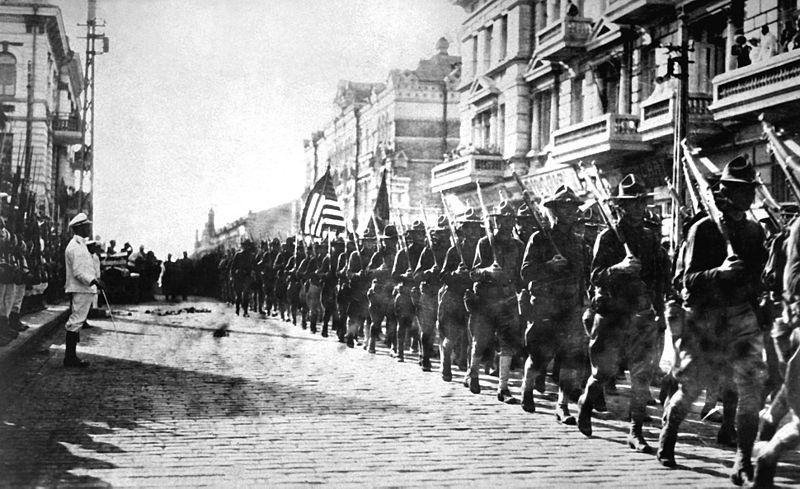
Poland
Having achieved its independence for the first time since the 18th century, Poland seeks to reestablish itself on a firm footing by seizing those regions that were historically Polish territory.
Although Poland’s western borders have now been largely decided, following some minor conflicts with the Germans and Czechs, she still covets territory in the east. Harking back to the huge Polish-Lithuanian Kingdom, General Piłsudski, the Polish leader, will undoubtedly enter the war at some point to achieve his aim of a Polish federation.
The areas that Piłsudski aims to incorporate within Poland’s new frontiers include parts of Lithuania, the Ukraine and Byelorussia. It should therefore come as no surprise to learn that neither the Bolsheviks nor the Whites are that enamored by Poland’s claims.
Poland will therefore be a White ally more through force of circumstances than out of any great feeling of amity between the two parties. Fear of Bolshevism is a great unifying factor!
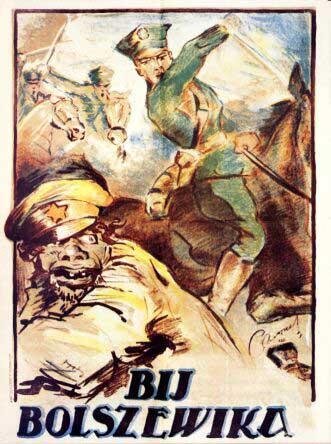
Voilà pour la présentation ... au premier tour, les Rouges ont attaqué les Cosaques du Terek et se sont emparés de Stavropol, tandis que Staline prenait le commandement à Tsaritsyne, que la SSR de Biélorussie était créée à Byalistok et que l'Ukraine commençait à sérieusement s'agiter.
